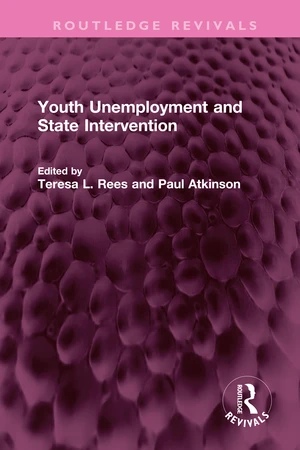In the early 1980s, against the background of chronic unemployment in Britain, the particular plight of young people had come to be identified as a subject for special concern. Anxieties were expressed, as they were in the 1930s, as a twin concern for a waste of the nationâs resources and for the demoralization of youth, leading potentially to anti-social behaviour. Originally published in 1982, this volume of essays identifies a number of key issues in the pattern of state response to youth unemployment which had evolved in the inter-war and post-war periods. The contributors discuss a number of related themes, such as how the problem has been defined and created as a kind of âmoral panicâ, and how contemporary measures recapitulate the rhetoric and policies of pre-war interventions. They examine the relationship between youth unemployment measures and the education sector, the responses of the trade unions, and also consider how young people themselves respond to special programmes. A critical assessment is made of the further education elements in the special measures: in particular, the question is asked: do these young people need âsocial and life skillsâ training? The book charts the changing nature of the state response to youth unemployment since 1974, and stresses throughout the inappropriate nature of âtemporaryâ amelioration of a long-term, even permanent, problem.
Price history
Aug 20, 2022
€56.29

